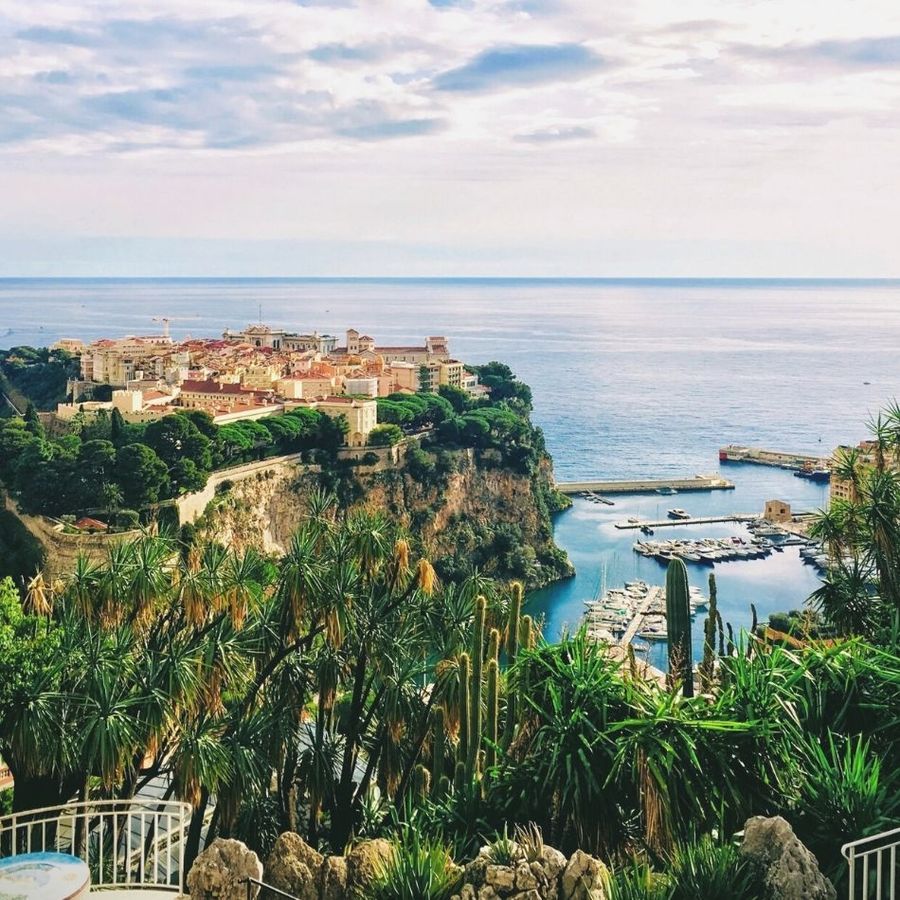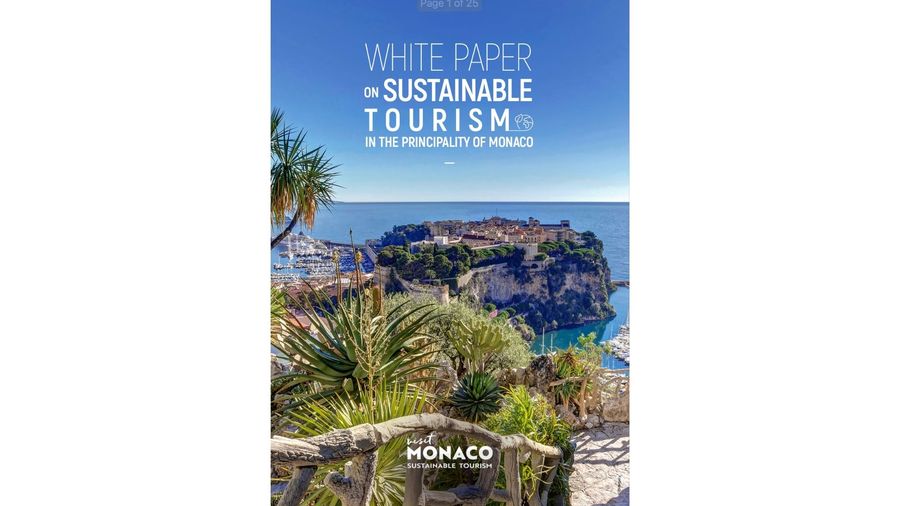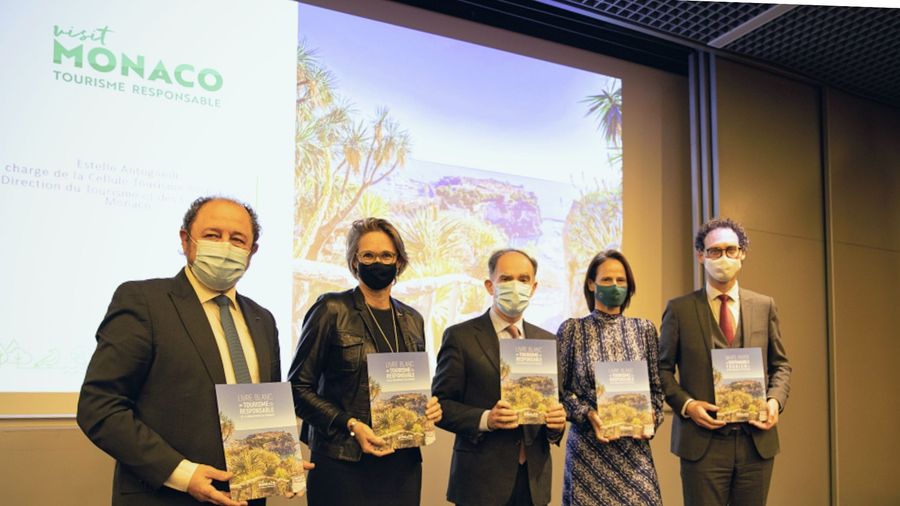Et bien! Monaco has released a thoroughly-researched, academically supported roadmap for getting to Destination Regeneration.
The White Paper was researched and written by the Tourist and Convention Authority and François Tourisme Consultants, in consultation with the destination’s partners, assistance from the Mission for Energy Transition and the support of the Department of the Environment.
The collegiate effort has identified the main priorities for an action plan. It’s a clear snapshot of tourism Monaco’s sustainability contributions, and its strengths and challenges.
Axes of Action
The Monaco Government Tourist Authority is responsible for the strategy and implementation of the responsible tourism action plan.
To make responsible tourism central to tourism development, strengthen the destination’s status, educate the broader economic sector around tourism, and further position Monaco government tourist authority as “a leader, mobilizer and steward of the collective” it is tackling the challenge from a variety of perspectives.
The axes are the foundation of the action plan.
1- Raise awareness, training, building skills (ODD 4, 14, 15, 8)
2- Manage the environmental impacts of the destination (ODD 12,13,14,15)
3- Measure (SDG 8 12 13)
4- Communicate – improve visibility (SDG 12 13 14 15 8)
5- Strengthen tourism for all and by all (SDG 8)
These are tackled through:
– creating a collective dynamic
– advising and supporting
– organising common actions to unite actors around common projects
– supporting various actors (advice, financial support, training, etc.)
The next step is a solid strategy and action plan, collaborating with partners to turn suggestions into measurable impacts, but it started with baby steps.
Seed of Inspiration
We were pleased to discover that the participation of Monaco in the GDS-Index initially inspired the white paper.
“Following our first benchmark,” explains Estelle Antognelli, Responsible Tourism Manager for Monaco Government Tourist and Convention Authority, “GDS-Index recommended we set up a strategy linked with the SDGs like Copenhagen did. It was mentioned as a best practice. This was one of the starting points for reflection that we then carried out with the Mission for Energy Transition, the Direction of the Environment, and all partners”.
When we analyse Destination Management performance, GDS-Index auditors look for evidence of a plan of action focused on the ethical, social, environmental, cultural, and economic dimensions of tourism and events, designed to achieve long-term goals. Strong strategies are forward thinking and encompass a bold roadmap to a better future over more than 2 years. They are aligned with the destination or region’s sustainable development agenda, and with the UN Sustainable Development Goals.
When faced with this challenge, Monaco embraced it to set a standard in a sustainability roadmap that serves people and planet alike.
All life matters
It’s encouraging to see how carefully the destination is addressing ecological regeneration through a variety of UN SDGs:
SDG 12: Responsible Consumption and Production, SDG 13: Climate Action, SDG 14: Life Below Water, SDG 15: Protect and Restore Terrestrial Ecosystems, SDG 11: Sustainable Cities and Communities.
We especially applaud their aspiration add SDG 4 – Quality Education – for no thriving destination exists without it. Whether it’s through training webinars for the hospitality supply chain or embodying the earth-supporting SDGs in tourism and meetings with dedicated courses in academic institutions, investing in knowledge is key to regeneration. Residents are clearly educated on and concerned about the environment, and research reveals they are also keen to know much more about how business and leisure tourism support this.
Walking the talk, telling the tale
The White Paper includes data from stakeholder sentiment analysis using a variety of effective tools such as questionnaires, workshops, interviews, and mid-term reviews. While Monaco is known worldwide for its efforts to become a responsible destination, and to protect its environment, the study reveals the surprising and pleasing insight that residents want to know more about Monaco tourism’s sustainability story. Any powerful storytelling that hinges off this study, is likely to be good not only for brand Monaco, but for inspiring locals to become eco-ambassadors themselves.
Innovative and integrative
Tech is often a hidden polluter, whether it’s e-waste in an ocean gyre or a website’s carbon footprint. Monaco’s plans to educate tourism stakeholders about ways to limit their digital pollution and use more ethical and earth-friendly impact technologies is intriguing. It’s an area of waste management that is often overlooked, but critical to developing a low- or no-carbon economy in the digital age!
Universal values, Concrete Actions
The mini manifesto in Section 6, “Following Through the Concrete Actions”, details that “tourism in the future will be inclusive, mutually supportive, fair, participatory, and sustainable”. Combined with resident consultation that evolves from engagement through to empowerment (we do what you say), this values list has the potential to transform the sector for all stakeholders.
This is a fabulous foundation for strong sustainability. Will stakeholders agree to action everything suggested? Will this White Paper be corroborated by any other effort? Will it be revisited in a year and updated? Will parts of it be used in campaigns to communicate its findings and offerings? We hope so, and we’ll be watching their next steps excitedly and supporting their journey to greater Regenerative Destination Management.





